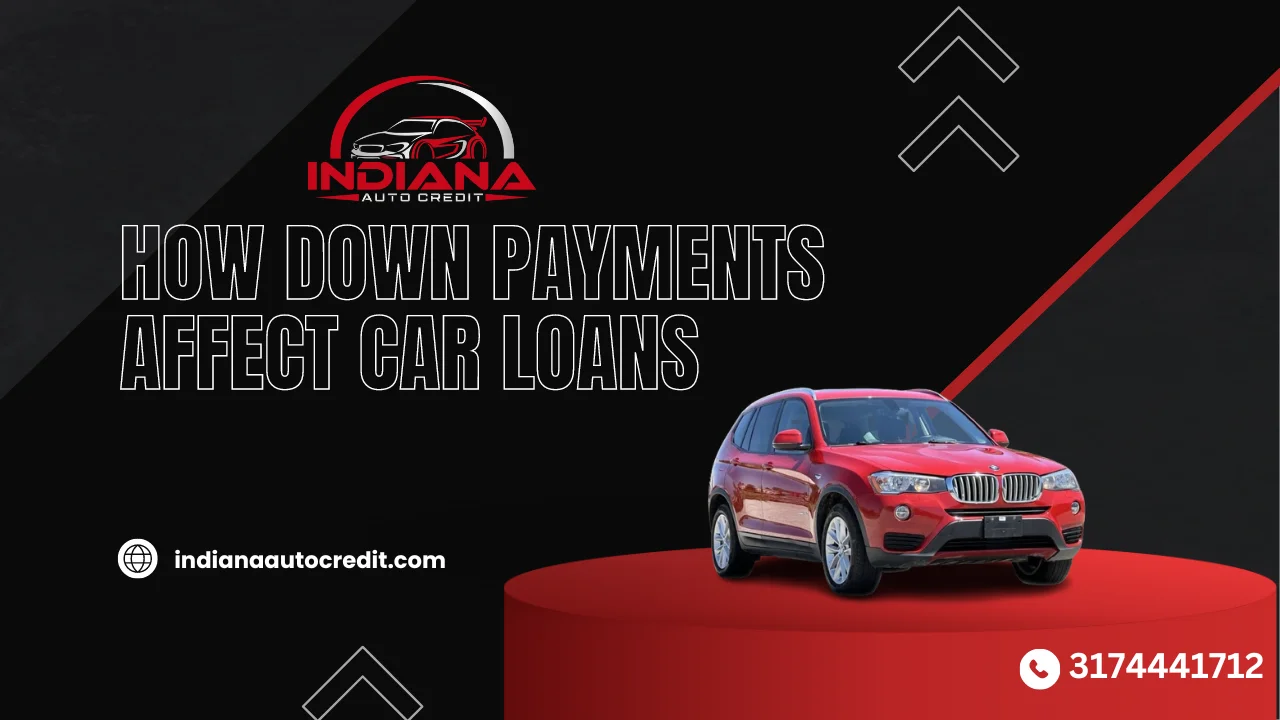How Down Payments Affect Car Loans
Down Payments Affect Car Loans- July 16, 2024
- Auto refinance loans, Car Loan Guideline, Lease Buyout Loan
- Posted by Admin
- Leave your thoughts
Down payments play a crucial role in shaping the terms and overall cost of a car loan, influencing both the immediate financial burden and long-term affordability. Essentially, a down payment is an upfront payment made towards the purchase price of the vehicle, typically expressed as a percentage of the total cost. The primary benefit of a larger down payment is that it reduces the amount of money you need to borrow. This reduction in loan principal directly correlates with lower monthly payments, as the loan amount and associated interest charges are lower.

Down Payments Affect Car Loans
Moreover,
a substantial down payment enhances your creditworthiness in the eyes of lenders. It demonstrates financial responsibility and commitment to the purchase, which can result in more favorable loan terms such as lower interest rates. Lenders perceive borrowers with larger down payments as lower-risk because they have a vested interest in the vehicle’s equity from the outset.
For instance, if you’re purchasing a $25,000 car and make a 20% down payment of $5,000, you only need to finance $20,000. This reduces your monthly payments compared to financing the entire $25,000. Furthermore, a lower loan amount means less interest accrued over the loan term, potentially saving you hundreds or even thousands of dollars in interest payments.
Beyond immediate financial benefits,
a down payment can also impact the loan’s duration. A smaller loan balance due to a larger down payment may allow you to opt for a shorter loan term. While shorter loan terms typically involve higher monthly payments, they also result in less total interest paid over the life of the loan, making it a more cost-effective option in the long run.
Additionally, making a sizable down payment can provide flexibility in negotiating loan terms with lenders. It strengthens your position by reducing the lender’s perceived risk and may enable you to negotiate for lower interest rates or favorable repayment conditions. Some lenders even offer incentives such as discounted interest rates for borrowers who make substantial down payments.
Conversely, a smaller or no down payment increases the loan amount and can lead to higher monthly payments and interest costs. It also extends the time it takes to build equity in the vehicle, potentially resulting in a situation where the outstanding loan balance exceeds the vehicle’s value (known as being “upside down” on the loan). This imbalance can restrict your ability to sell or trade-in the vehicle without covering the difference between the loan balance and the vehicle’s worth.
It’s essential to consider your financial circumstances and goals when deciding on a down payment amount. While conventional wisdom suggests a 20% down payment, which balances affordability and financial benefits, individual circumstances vary. Some buyers may opt for a larger down payment to minimize borrowing costs and secure better loan terms, while others may choose a smaller down payment to preserve cash flow or take advantage of low-interest financing options.
Ultimately,
the significance of down payments in car loans lies in their ability to influence affordability, loan terms, and overall financial health. By carefully assessing your budget, researching loan options, and understanding the impact of down payments, you can make an informed decision that aligns with your financial goals and maximizes the value of your vehicle purchase.
